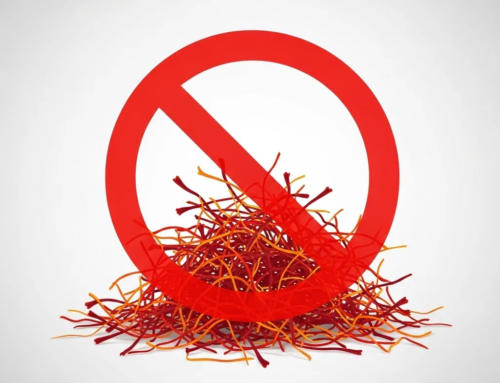 Important Considerations for Saffron Consumption in Cooking
Important Considerations for Saffron Consumption in Cooking
Health risks of saffron consumption
Saffron holds a special place in Iranian cuisine, renowned for its vibrant color and aromatic flavor. However, when incorporating saffron in dishes, it’s essential to be mindful of certain consumption restrictions related to saffron, ensuring it is used in appropriate amounts for the best flavor and health benefits.
Saffron is known for its delightful color and intense aroma, yet pure saffron can have a bitter taste. Used predominantly as a spice in Iranian and Mediterranean cooking, saffron is safe when consumed in small amounts in food and beverages. However, excessive or prolonged use may lead to some health risks.
Health Risks of Excessive Saffron Consumption
While saffron brings exceptional depth and warmth to a dish, overuse can have undesirable effects on the body. The most common side effects of excessive saffron consumption include:
- Nausea
- Vomiting
- Dizziness
- Dry mouth
- Anxiety
- Lack of appetite
- Being easily agitated
- Stomach discomfort
- Sleepiness
- Headache
Who Should Pay Special Attention to Saffron Usage Restrictions?
If you have any of the following conditions, it’s vital to be cautious with saffron intake:
Individuals with Bipolar Disorder and Saffron
Saffron can positively affect mood and create a sense of euphoria. For those with bipolar disorder, it might exacerbate manic symptoms, potentially worsening the condition.
Heart Disease and Saffron
People with heart conditions, including arrhythmias, should avoid large amounts of saffron. Saffron may influence heart rate, which could have adverse effects on heart health.
Diabetes and the Need for Caution with Saffron
Studies show saffron can lower blood sugar levels. Diabetics should therefore consume saffron with care, frequently checking their blood sugar levels to avoid hypoglycemia.
Hypotension: Low Blood Pressure and Saffron Usage
Saffron may lower blood pressure, which means individuals with naturally low blood pressure should use it cautiously to avoid further lowering their pressure.
Pregnancy and Saffron Consumption
Excessive saffron intake during pregnancy is dangerous, as it may induce uterine contractions, potentially leading to a miscarriage. Always consult with a doctor before consuming saffron during pregnancy.
Saffron and Surgical Procedures
Due to saffron’s effects on the central nervous system, it can interfere with anesthesia during surgery. It is advisable to stop consuming saffron at least two weeks prior to any scheduled surgical procedures.
Kidney Disease and the Impact of Saffron
For individuals with kidney disease, consuming saffron may hinder the kidney’s ability to eliminate toxins due to possible interactions with medications.
Allergic Reactions to Saffron
Some individuals may experience allergic reactions to saffron, ranging from mild to severe symptoms. Those with known allergies should consult with a healthcare professional before consuming saffron.
Conclusion: Enjoy Saffron Responsibly
Saffron, with its remarkable color, taste, and fragrance, is an invaluable addition to many dishes. However, to fully enjoy saffron’s benefits, it’s crucial to use it within recommended limits. By understanding the restrictions on saffron consumption and taking the necessary precautions, you can safely integrate this wonderful spice into your cooking.
Focus Keyword: Saffron Consumption Restrictions
Health risks of saffron consumption
- Saffron consumption,
- Health risks of saffron,
- Saffron benefits,
- Safe saffron use,
- Saffron side effects,
- Restrictions on saffron,
- Saffron and health,
- Consuming saffron in cooking,
- Bipolar disorder and saffron,
- Diabetes and saffron,
- Saffron and pregnancy,
- Kidney disease and saffron.







Get Social